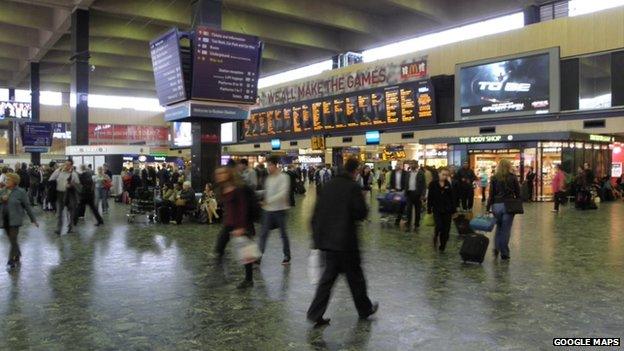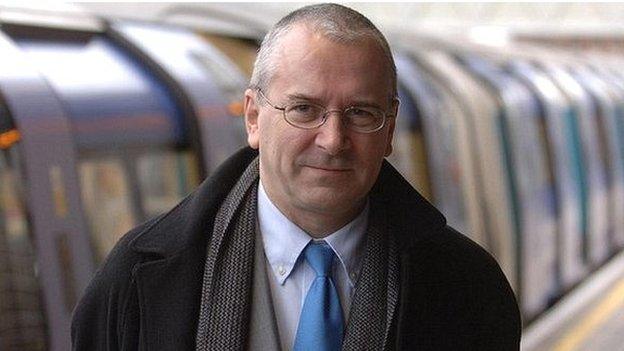Why a national rail strike will hit the south east worst
- Published
- comments

Think of transport in London, and you might call to mind the Tube, red buses or even black cabs.
But we also rely heavily on the rail network and, at the risk of stating the obvious, if there is a rail strike then it is London, the south east and many commuter towns that will bear the brunt.
According to the latest figures from the Department for Transport (DfT), there are more than 10 times the number of peak rail commuters coming into London than the next biggest city in the UK.
This is not to demean the impact on the line in the North, say between Leeds and Manchester, but more people will be impacted in the south east.
The report from the DfT, external says: "London had a much higher number of passengers travelling in and out of the city centre compared to any other city, with 545,000 arrivals in the morning peak on a typical weekday in 2013 compared to 39,000 in Birmingham, the second busiest city."
Over the course of the day 981,000 people arrived in London by rail, according to Dft figures from 2012.
In 2013 there were 1.6bn passenger journeys in the UK, of which 70% were on London & South East operators, 22% were on regional operators and 8% on long distance operators. the Office of Rail Regulation says.
'Unions are aggrieved'
There are also parts of south London where reliance on the network is further increased because there are very few public transport alternatives.
So just shy of one million people could be affected by the 24-hour strike that starts on bank holiday Monday on 25 May.
(In practice this figure may be lower because some parents may be off work for childcare reasons during half term.)
Pay talks have been going on for some time and the conciliation service ACAS is involved. There had been some positive signals but that initial optimism seems to have evaporated.
The unions are particularly aggrieved about a non-consolidated £500 payment for the 2015 part of the four-year pay deal.
They also have concerns about the 'no compulsory redundancy' part of the deal which they want extended beyond 2016.
Earlier Network Rail, external threatened legal proceedings against TSSA, external, one of the unions involved the "white collar" bank holiday strike, because of alleged strike ballot irregularities.
Sources at Network Rail say they have to try every avenue to keep the railways running, but the move will be seen as provocative by the unions.
In negotiations there is always an element of brinkmanship. The language hasn't shown much compromise so far.
Lots of people ask me if next week's rail strike will go ahead. The answer is a fudge: I'm afraid you have to assume it is on - until it is called off…
- Published29 April 2015
